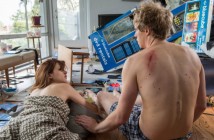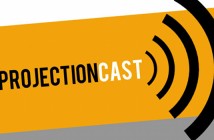
“Some say love… it is a river, and that it drowns the tender reed.”
You are sitting in a bar. Colin Farrell is staring at you behind his shaggy mustache. A Conway Twitty impersonator is singing in the background and the world is seen through a hazy David Lynchian filter.
Some say love, it is a razor… that leaves your soul to bleed.”
“Where is this?” He asks.
One of the greatest scenes on television this from Maybe Tomorrow, episode three of True Detective season two, we are thrown right into Ray Velcoro’s (Collin Farrell) resurrection and are finally introduced fully to one of the best acted and thoroughly realized characters in a crime drama — well… since Stringer Bell and the rest of The Wire.
A quick search for True Detective season two will be greeted with an onslaught of animosity and the repeated question: “What went wrong?”

Few, until now, have examined what went right with this season. Yes, I understand the clinging-mentality to season One — I am part of that elite pretentious group as well- but just because we get something different doesn’t mean that it’s worse.
Before I mount my defense, I must acknowledge the stumbles season two takes: the awkward dialogue that can take you out of a scene, the disappointing finale for Ani Bezzerides (Rachel McAdams) or how Paul Woodrugh (Taylor Kitsch) could really have been taken out of the entire season. Or, possibly the greatest critique is that Pizzolatto is too eager to please his critics from season one; I half expected Matthew McConaughey to show up in the finale as the birdman.
Of course season one was a masterpiece. There were two actors at the top of their game — McConaughey and Harrleson — with brilliant direction that worked perfectly with Nic Pizzalato’s sometimes bizarre script and the beautiful Louisiana backdrop. That is impossible to replicate, but that also shouldn’t be expected. Going into this season expecting it to match that is irresponsible. It seems we get the series we deserve.
In a television era where we literally have people taking screenshots and dissecting every frame, Nic Pizzolatto was set up to fail. The culture of this season was to create a clue or allusion that someone on the internet found and then sound the disappointment alarm when it didn’t pan out when speculation was all it ever had been initially. Of course, part of the fun of Nic Pizzalato’s writing is the subtle clues he leaves for the keen observer - A.Ron Hubbard of BaldMove.com shrewdly deems this the “Three-Step Reveal” where a show will leave a literary-trail of breadcrumbs once for the very observant viewer and so on getting increasingly more obvious — True Detective does this possibly better than any show on save Game of Thrones.
Since there is such a plethora of points to cover I have to break down the defense into a three-pronged approach: the performances, the cinematography and the story-arc.
Admittedly I was suspicious when the casting news came out for season two - particularly Taylor Kitsch and Vince Vaughan, who I think are fine actors albeit with limited range. McAdams I wasn’t worried about as she has demonstrated her professional versatility and Farrell has had some dramatic performances (In Bruges for one, where he also plays a Ray).
Farrell’s Ray Velcoro is so impeccably rendered he didn’t just disappear into the role, he embodied it. The range Farrell had to reach for is commendable in itself but the scenes where he truly shines is when he is acting with expression rather than dialogue, which comes to an climax in particular with a beautifully shot scene in the redwood forest that captures his desperation without saying a word. I believed every second of what he was trying to convey in a career performance by Colin Farrell.
Vaughan has some glimpses of brilliance and is generally satisfying here as well — while, Pizzolatto most likely envisioned a McConaughey-type performance here that just isn’t plausible- he plays Frank Semyon the only way he could. Whether purposefully or not, the casting was meta in many ways: Vaughan was playing against his type and purposefully slowed his acting down, and towards the end was glossing through the fairly bizarre dialogue he was given
McAdams was strong as well, though this wasn’t so much of a surprise. From Mean Girls (my not-so-guilty pleasure) to A Most Wanted Man and Midnight in Paris and even The Notebook, McAdams has shown her depth and that she can shed the type-casting that she is all too often pigeon-holed to.
Kitsch is the only one unsure here, with a performance that isn’t necessarily the product of his skills as an actor- I want to be on record stating that he is a fine actor — but the product of an unsurely written character.
The cinematography and costume design were consistently striking throughout the series. The David Lynchian scene in the tavern with Velcoro and Daddy-Velcoro in Maybe Tomorrow that I sited earlier was the best thing about the season with other high points coming with the Ray Velcoro getting fake-murdered by a birdman in Night Finds You, the shootout in Down Will Come, the Omega Station setting and the two wonderfully dark death sequences all in Omega Station. With essentially a different director every few episodes the season may have suffered slightly from a lack of a single vision and actor-to-director chemistry that Fukunaga gave it in the first season but also brought a new vision to the different set pieces and tones that were varying per episode - and brought some fantastic scores to each scene, not to mention the creepy score of the opening credits.
The finale though, which was bashed by most, ironically was actually the best aspect of the season. Ending with the protagonists killed and the bulk of the main villains escaping left most people questioning why did we even do this? Though, after prostrating, this is exactly what we were supposed to question. Again, we get the world we deserve - and this highlights a very real problem. The corrupt don’t always lose to the good guys, most of the time they go without consequence. The glimmer of hope at the end coming from McAdams when she told the reporter that “[Velcoro] paid for this with blood, treat it like so”.
Each character — with the one disappointing exception of Rachel McAdams — one of the strongest characters was incomprehensibly left on the bench in the end — served their complete character arc.
True Detective season two will go down as a disappointment to most considering the first season, but what everyone is failing to see is how great the season is compared to television series as a whole. In an era where television is competing with film and networks and crime dramas are being pumped out enough to give you blue balls of the brain, the True Detective anthology stands mountains above the rest - aside from only The Wire.
The Roundup
- “ You deal with pimps, you get pimpish results”
- “I would have been different” “Of all the lies people tell themselves, I bet that’s the most common”
- “Can I help you, Cisco Kid?”
- “Where is this?” “I don’t know, you were here first”
- “The fundamental difference between the sexes is that one can kill the other with their bare hands”
- “If you drink straight out of the bottle, you have a problem”
- “Pick a cure”
- “It seems… you get the world you deserve.”




Pingback: loans in Atlanta with bad credit()